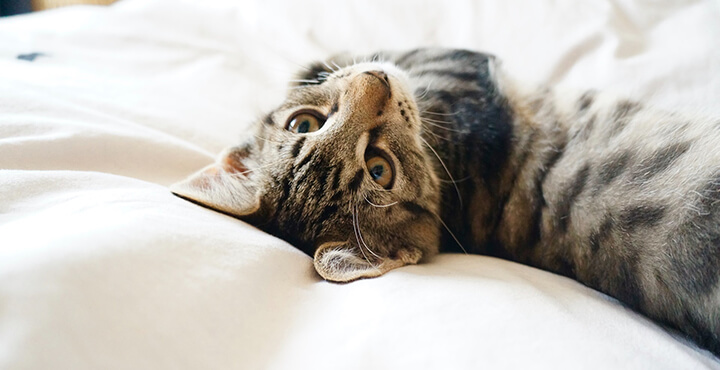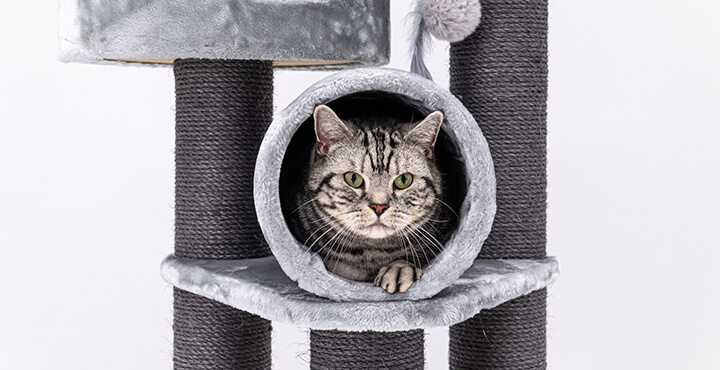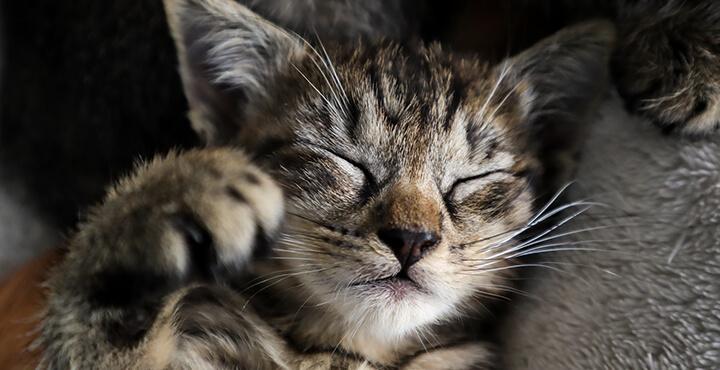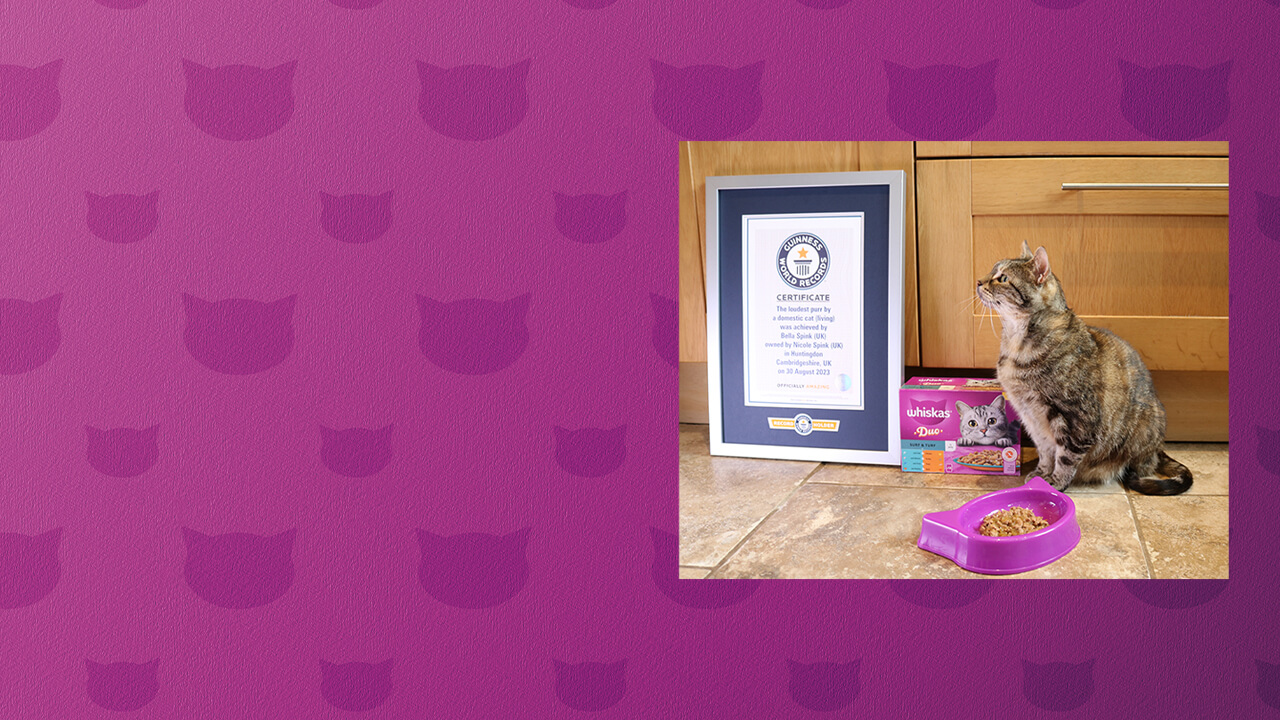
It’s natural for cats to go through behavioural changes as they get older – much like humans, many will have less energy and a reduced desire to play. However, some changes in behaviour may be more distressing for cat owners than others; such as confusion or forgetfulness in their pet; and can mean something more serious than just old age.
Whiskas looks at potential changes in senior cats’ behaviour and how owners can adapt to ensure their feline friends stay happy and healthy in their old age.
Common cat behaviour changes
There are some feline behavioural changes that are to be expected as cats get older. Firstly, a common cat behaviour change is to stop responding to their name, or don’t appear when called. This can usually be attributed to hearing loss or deafness.
It is also normal for cats to go through changes in their eating habits. As cats’ metabolism and digestion slow down with age, older cats may not eat as much. To encourage your senior cat to eat, Whiskas cat food contains all the necessary nutrients they need to stay healthy, and the delicious range of flavours available will tempt any fussy eater to their bowl. Try feeding your cat at the same time each day to establish a firm routine.
Most cats reduce the time they spend hunting as they get older and do not get as much exercise. They are likely to sleep more often, for longer, and be less interested in playing or grooming.
Feline dementia and anxiety
Sometimes older cats will forget learned habits, most commonly litter training. This forgetfulness is sometimes known as cognitive dysfunction syndrome (CDS), or Feline Cognitive Dysfunction.
If your cat has started to go to the toilet indoors, or somewhere they aren’t supposed to, don’t scold them. Try moving the litterbox to make it easier for them to find, or offering more than one litter tray – some cats will not use a tray that has previously been soiled.
However, going to the toilet in the wrong place is not always due to Feline Cognitive Dysfunction, but can be a sign of a different underlying problem, such as a feline UTI or other medical conditions. If in doubt, you should take your cat to the vet so they can determine exactly what the issue is.
Anxiety in cats symptoms
As well as forgetting trained behaviours, confused older cats can develop anxiety. Symptoms of anxiety in cats can include being more vocal (excessive meowing), aggression, hiding, or being clingier. If your cat develops anxiety in their old age, you can use calming techniques to potentially help the condition – ask a vet for advice on how to do this.
Symptoms of cat anxiety can also indicate that something else is not right – either with their health or within their environment. Consider whether there have been any changes to their environment or routine so that the vet can properly diagnose any potential issues.
The best way to cope with FCD or anxiety is to be patient and establish routine – keeping things the same will reduce confusion for your cat and make them feel safe and secure.
How to adapt to changes of behaviour in cats
The older cats get, the more they rely on routine. Try to stick to routines as much as possible to avoid confusing your cat, including feeding.
Older cats also experience changes in the amount of affection they give, or the amount they demand back. Some cats become grumpier and more withdrawn with age and dislike being touched or petted. Others become more dependent and are happy to spend more time on laps. Love and affection may even help to decrease anxiety in cats during their senior years. Whatever change your cat exhibits, you should respect them – even if they would rather not be picked up and cuddled, they may still enjoy sitting next to you on the sofa or being talked to.
Behavioural changes in cats are normal as they get older. However, all cats are different – you should monitor your pet closely for any changes in behaviour and always take them to see a vet if you are worried.
Whatever change your cat exhibits, you should respect them – even if they would rather not be picked up and cuddled, they may still enjoy sitting next to you on the sofa or being talked to.Whiskas looks at potential changes in senior cats’ behaviour and how owners can adapt to ensure their feline friends stay happy and healthy in their old age.














